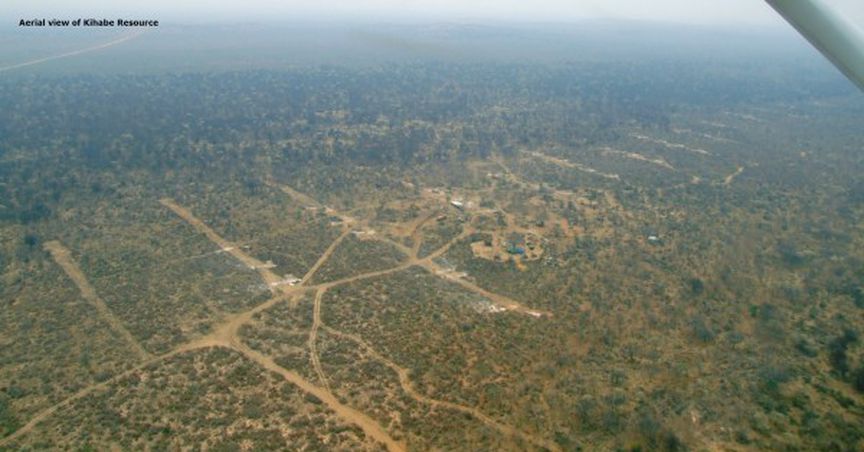Devastating effects of COVID 19 are seen worldwide ever since the unprecedented virus outbreak has been declared a pandemic by the World Health Organization. It swiftly became apparent that countries need to take urgent and necessary steps to protect their respective economies and people from the black swan event.
Exploration and production activities have been impacted and remained on halt, and consequently, businesses have suffered.
Amid the pandemic situation, ASX-listed Mount Burgess Mining NL (ASX:MTB), currently developing the Kihabe and Nxuu Zinc/Lead/Silver/Germanium and Vanadium deposits in Botswana, has notified that the Government restrictions have affected and may continue to impact its Kihabe-Nxuu Project. However, MTB affirms that it will continue with planned work once there is some sign of relief on the health crisis.
Kihabe-Nxuu Project- PL 43/2016
The Company’s objectives are to explore for and in the event of discovery, develop commercial deposits of mineral resources with the current focus on PL 43/2016, for which a two-year renewal to 31 December 2020 was granted on 29 November 2018, with a right to renew for a further two years to 31 December 2022.
Located in Western Ngamiland, Botswana, the PL 43/2016 covers an area of 1000 sq km within which is situated a Neoproterozoic, hosting what is believed to be SEDEX style mineralisation and is a belt prospective for base metals.
The Company has developed resources at two deposits to date, namely the Kihabe and Nxuu deposits that are 7 kms apart and comprise of indicated & inferred 2004 JORC compliant resources of 25 million tonnes @ 3% Zn/Pb along with 3.3 million ounces of Silver (at Kihabe). Besides this, they also comprise of credits of Germanium and Vanadium mineralisation, which could add significant further value to the resource base.
Nxuu Deposit
MTB is initially concentrating on developing the totally oxidised polymetallic Nxuu Deposit, containing Zinc, Lead, Silver, Germanium and Vanadium. The deposit is a shallow basin-shaped deposit with a maximum depth of 64 meters. It has the probability for onsite metal/mineral recovery procedures to be applied, and is a low-cost, low-risk operation, apt to attain beneficiation in Botswana.
Involved only in exploration and resource development currently, MTB has been assessing the way forward for the Project in the past few months. Investigating the potential to exploit additional known metal credits (like Vanadium and Germanium) and analysing several metallurgical processes that can enhance the possibility of on-site beneficiation of metal production are some of the activities that fetched market interest for MTB.
Significant Vanadium assay results have been obtained from both the deposits, as well as the Gossan Anomaly. Moreover, there is a potential future demand for energy storage in Vanadium Redox Flow batteries.
Besides, mineralogical and metallurgical test work on the Nxuu Deposit Vanadium samples confirmed that-
- Vanadium is hosted in the oxide vanadate DESCLOIZITE, where the mass of Vanadium Pentoxide is 1.785 times the mass of Vanadium.
- For recovery to a concentrate, 82% of Vanadium Pentoxide equivalent can be recovered from DESCLOIZITE on site, via flotation using a Hydroxamate oxide collector. Straightforward hydrometallurgical steps can then produce Vanadium Pentoxide, a significant credit for the Project.
To know about MTB’s Vanadium opportunity, READ HERE- Mount Burgess Eyes Proposed Route for Simple Vanadium Production from Nxuu Deposit
Let us look at recent tests conducted at the deposits-
Bulk Sensor Sorter X ray Test Work
A bench scale test work took place on 1/2 HQ drill core samples from the Nxuu Deposit last year. Results demonstrated that more than 4mm was rejected as insignificantly mineralised, after crushing 45% of the complete crushed feed. Consequently, only 55% is required to be milled to be further subjected towards downstream treatment.
Milling requires the most amount of power, and the results validate that there could be a significant saving on power requirements and power costs.
EDS Vertical Milling Process
EDS South Africa supposes that Vertical milling process will work proficiently on the Nxuu Deposit as the ore is extremely oxidised. The process merely necessitates 25% of the power to operate conventional Ball/SAG/ROD mills. Like the bulk sensor sorter X ray test work, this too can have a further substantial saving on power costs and power requirements.

Testwork to Affirm Host Mineral of Germanium
In January 2020, from the Nxuu Deposit, the Company arranged 6.8kg of crushed HQ diamond core samples to be sent to Naples University for a test to determine the host mineral of Germanium. Significant time was spent by the University’s Dean of the Faculty of Geosciences, Maria Boni, in examining host minerals of Germanium and Vanadium in likewise deposits.
If recoverable, Germanium could possibly represent a significant credit for the project. Moreover, as per MTB's recent report, it is trading at just below US $2,000 per kg.
What To Expect In a Relieved COVID 19 Environment?
MTB is vigilantly observing the COVID 19 situation on a day to day basis. It has also received $10k from ATO as a part of COVID 19 State and Federal stimulus programs. The Company affirms that the Kihabe-Nxuu Project will proceed with work that was planned as soon as there is some relief. Meanwhile, let us cast an eye at the planned works-
Bulk Sensor Sorter X ray test work through STEINERT could be conducted following previous encouraging results. The Company has already made efforts to recover enough HQ core from Nxuu Deposit site for this test work to take place in Perth. The lockdown restrictions introduced by the South African Government affected assay laboratories and metallurgical laboratories. Moreover, freighting samples through South African Airways was no longer possible due to travel restrictions.
The EDS vertical milling process is also likely to pick up post virus relief as EDS has not been able to collect available HQ core and attend workshops to conduct this test work, owing to lockdown restrictions imposed by the South African Government and MTB has not attempted to send HQ core from site to South Africa.
While these test works are due, Naples University was closed in March due to lockdown orders levied by Italy’s Government. This means that test work to determine the host mineral of Germanium has not been completed and might pick up once the University reopens.
MTB has inculcated the work from home culture for staff and Board along with meetings and communications via teleconference/video from home, other than on occasions where it is absolutely necessary to visit the office. It also has a blueprint of works that could drive encouraging results once COVID 19 restrictions are lifted.
MTB quoted $0.002 on 14 May 2020.




_07_02_2025_00_23_12_199043.jpg)
